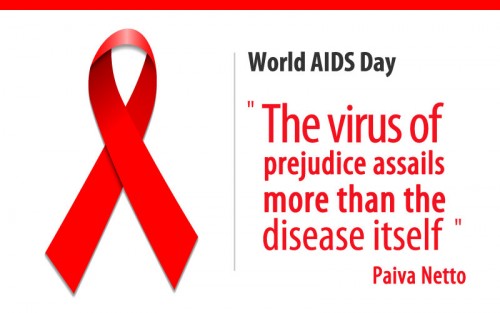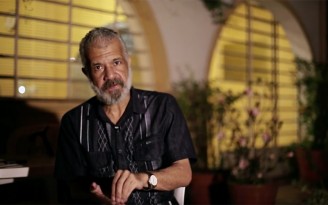
The voice of young people: AIDS without prejudice
By the Editorial Staff
Monday | December 01, 2014 | 9:00 AM | Last update: September 22, 2016, 4:07 PM (Brasilia time)
What would you do if you discovered that someone in your family had the HIV/AIDS virus? Would you distance yourself from them or help them? Would you react with prejudice? The team from the Good Will Portal went to the José de Paiva Netto Educational Institute in São Paulo (Brazil) to ask middle school students what they think about the subject.
READ MORE ABOUT IT:
- Article by journalist Paiva Netto: "AIDS – Don’t give up on the fight"
- Living with AIDS is “a challenge overcome each day," says HIV-positive woman

While for many people it may seem to be a taboo subject, talking about AIDS is not a problem for these young people. That is because in all the Legion of Good Will (LBV) schools, its own teaching methodology includes the subject known as Convivência [Living Together]*, in which students research and debate the disease (what it is, how it is transmitted, how it is treated, and, of course, how to prevent it) without shame or fear of receiving information, and they arrive at interesting conclusions.
People often exclude those who are HIV positive due to lack of knowledge, and that is where the prejudice comes from. “There are myths concerning infection that need to be laid to rest. Many people discriminate against people with AIDS precisely because they don’t know about the disease fully,” comments Sabrina Caetano, 17 years old.
In the opinion of Priscila Mendes, 17 years old, the prejudice suffered by those with AIDS is serious and “may start in the family itself, which, like society, may often judge them instead of welcoming them and trying to understand them.” This attitude results in “abandonment, which affects those with the virus even more. It’s at this moment that they need more support and solidarity,” adds Rene Clemente, 17 years old.
Even when they are under treatment, people with AIDS can and should live normally, without abandoning their affective and social lives. They have the same rights as anyone else to work, to date, to have fun, and to make friends. This is what Amy de Souza, 17 years old, says: “The person living with AIDS can live alongside other people and in society. They’ll not transmit the disease if they touch or simply communicate with other people.”
Student Matheus Araújo, 18 years old, remembers that there are diseases that kill more people than AIDS, like diabetes, for example, which in Brazil kills four times more people, according to the Ministry of Health. There are others that can be more contagious and transmitted through the air, as is the case with the flu. However, the prejudice against those who have HIV has become very aggressive. “During class the teacher showed a video that pretended that one of the seats in the subway was reserved exclusively for those with AIDS. Several people passed by and didn’t sit in it. This shows how ignorant people are, because a person with the flu is more dangerous to others in this situation than someone with AIDS,” the student exemplifies.

According to a report by the Joint United Nations Programme on HIV/AIDS (UNAIDS), HIV-positive people are living longer and the number of deaths related to the disease are reducing due to the effectiveness of the antiretroviral therapy. We have to celebrate the progress being made in access to treatment, but we cannot forget that more than 35 million people in the world still live with HIV. New generations need this knowledge: “The Living Together classes are a time for reflection on our attitudes and the formation of a better future for us and for the generations to come. Young people may even go down the wrong path that could be avoided if they only had a space like this; a place for warning them [about the issue] and for dialogue without prejudice,” argues Priscila Mendes.
Carolina Santos, 18 years old, believes that “classes of this type should be by law included in schools, because there’s still lack of information, interest, and empathy. If not, ignorance and prejudice will increase more and more each day.” Marcus Vinicius Scolari, 17 years old, adds: “Discrimination shouldn’t exist, not only against those who have HIV, but against anything, whether it’s religion, sexual orientation, race, or the social and economic situation, because we’re all human beings, and we all have our qualities and faults. We should respect all these differences.”
________________________________________
*Convivência [Living Together] classes — The Living Together subject, which was created by educator Paiva Netto, invites students to take part in research activities and discuss the important subjects of daily life. It is included in the teaching network of the Legion of Good Will throughout Brazil and abroad.


